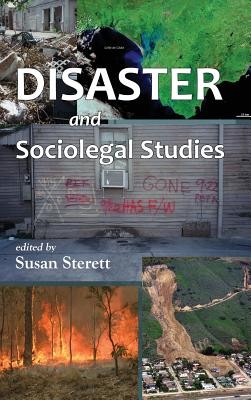
- We will send in 10–14 business days.
- Publisher: Quid Pro, LLC
- Year: 2013
- Pages: 268
- ISBN-10: 1610272080
- ISBN-13: 9781610272087
- Format: 15.2 x 22.9 x 1.9 cm, kieti viršeliai
- Language: English
- SAVE -10% with code: EXTRA
Disaster and Sociolegal Studies (e-book) (used book) | bookbook.eu
Reviews
Description
Legal governance of disaster brings both care and punishment to the upending of daily life of place-based disasters. National states use disasters to reorganize how they govern. This collection considers how law is implicated in disaster. The late modern expectation that states are to care for their population makes it particularly important to point out the limits to care - limits that appear less in the grand rhetoric than in the government reports, case-level decisionmaking, administrative rules, and criminalization that make up governing. The authors argue that government documents explaining disaster put the responsibility to adapt to rapidly changing circumstances on people - often on individuals - not on the government. Law is a causal force in what are commonly called natural disasters. When courts consider causation and property rights, often separated across cases and over time, they often defer to the importance of economic activity. Police forces charged with protection rapidly turn on those they are to protect, thinking that people need protection from the victims of disaster. These insightful essays feature leading scholars whose perspectives range across disasters around the world. Their findings point to reconsidering what states do in disaster, and how law enables and constrains action.
EXTRA 10 % discount with code: EXTRA
The promotion ends in 22d.12:07:39
The discount code is valid when purchasing from 10 €. Discounts do not stack.
- Publisher: Quid Pro, LLC
- Year: 2013
- Pages: 268
- ISBN-10: 1610272080
- ISBN-13: 9781610272087
- Format: 15.2 x 22.9 x 1.9 cm, kieti viršeliai
- Language: English English
Legal governance of disaster brings both care and punishment to the upending of daily life of place-based disasters. National states use disasters to reorganize how they govern. This collection considers how law is implicated in disaster. The late modern expectation that states are to care for their population makes it particularly important to point out the limits to care - limits that appear less in the grand rhetoric than in the government reports, case-level decisionmaking, administrative rules, and criminalization that make up governing. The authors argue that government documents explaining disaster put the responsibility to adapt to rapidly changing circumstances on people - often on individuals - not on the government. Law is a causal force in what are commonly called natural disasters. When courts consider causation and property rights, often separated across cases and over time, they often defer to the importance of economic activity. Police forces charged with protection rapidly turn on those they are to protect, thinking that people need protection from the victims of disaster. These insightful essays feature leading scholars whose perspectives range across disasters around the world. Their findings point to reconsidering what states do in disaster, and how law enables and constrains action.


Reviews